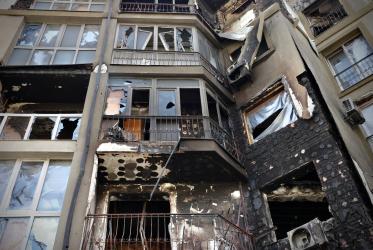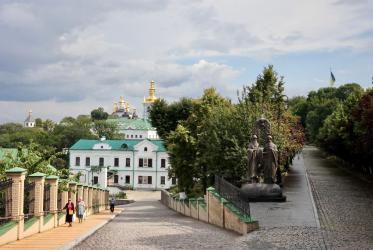Displaying 1 - 10 of 10
Paving the way for ecumenical studies, learning English in Bossey
24 September 2018
An interview with the Ethiopian Patriarch, Abune Matthias
14 February 2017
Momentum builds for ban on nuclear weapons
16 December 2014
Indigenous faith leaders reflect on resilience and climate change
23 September 2014






